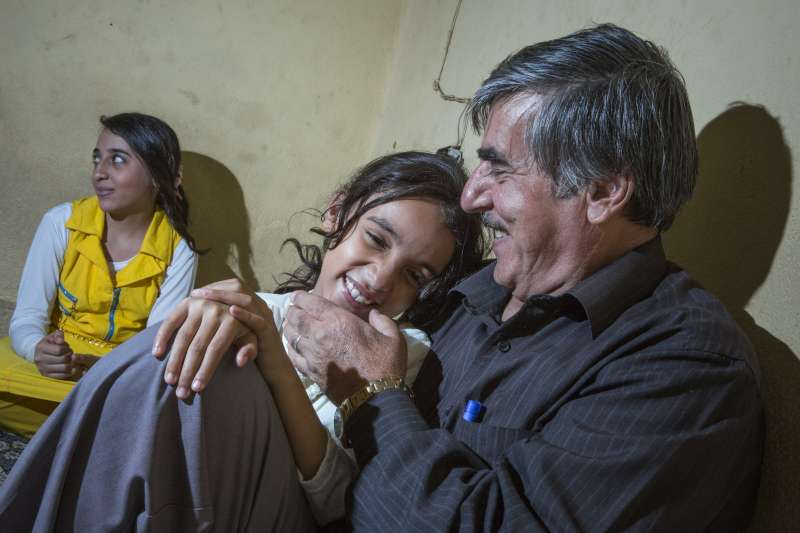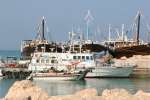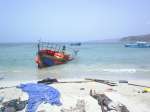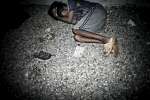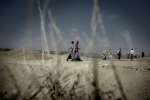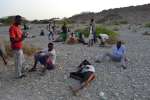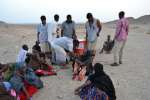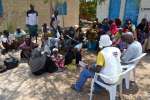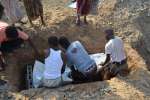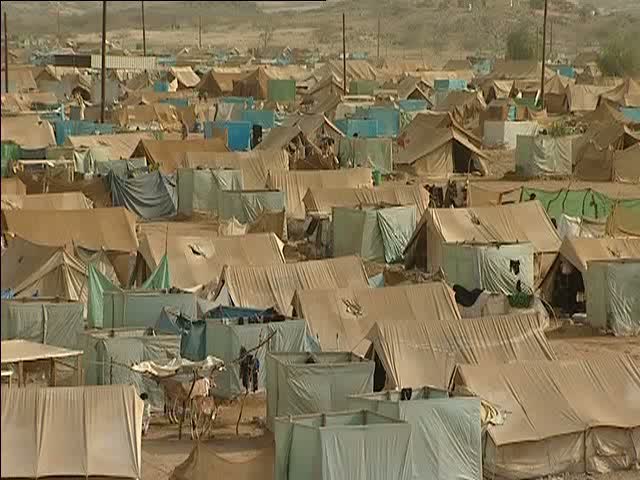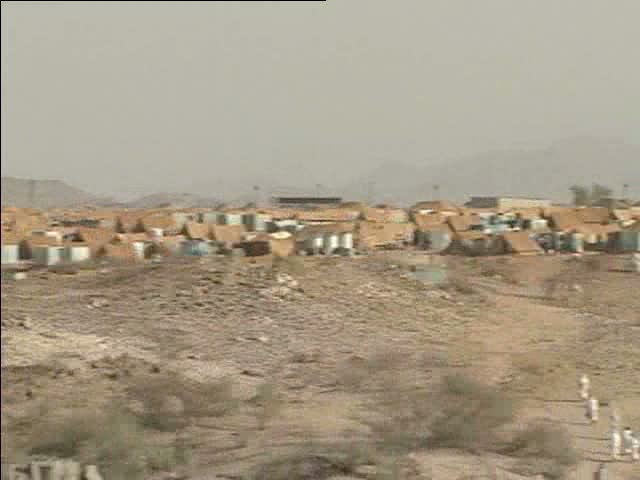Iraqi national flees for second time as bombs rain on adopted home of Yemen
News Stories, 22 October 2015
ADDIS ABABA, Ethiopia, Oct 22 (UNHCR) – When Husam and his wife Nemah decided to leave their home in Shar Khawlan Nuqum, Yemen last June, they did not hesitate for one moment.
The country was a war zone. Bombs were falling from the air like rains of fire. They knew if they wanted their three beautiful daughters to live, they had to flee.
"We lived in fear every single minute and we could never sleep," recalled Nemah from the safety of the Ethiopian capital Addis Ababa.
For Husam, it was not the first time. As an Iraqi national, he had witnessed conflict and knew been from experience it was often the innocent, like his daughters, who paid the ultimate price.
He himself had fled to Yemen 14 years ago and was already registered as a refugee. Now, with Nemah's mother being Ethiopian, the family decided to head for Ethiopia.
The situation in Yemen has escalated rapidly since March 2015. By May, the conflict had resulted in the death of 646 people, and wounded 1,300 individuals. Sadly, as of 22 October, over 2,000 civilian deaths have been recorded as well as over 4,000 casualties.
But it was when airstrikes hit the Nuqum Mountains, near their home, that the couple realized how serious the situation had become.
"We were afraid we were going to die," said Husam. "My daughters were scared and the youngest started fainting of fear. There was neither electricity nor water. Even though during the war we had food stored, we had to leave everything behind."
The journey from Sana'a was fraught with danger. On their way, they met militants who threatened to hold them captive. Husam told them he too was a Shia Muslim, so they would let them go.
"They held my wife and said that because she is Yemeni, she was not allowed to leave Yemen," he said. "I had to convince them that I am Iraqi and she is my wife."
The family moved from one place to another until they reached Al Mokha. Then, after a perilous 24-hour journey across the Gulf of Aden, they arrived in Djibouti and used their savings to pay for flights to Addis Ababa.
"We came with US $7,000 and faced difficulties obtaining a visa in Djibouti, until a kind lady working in the Ethiopian Embassy there saw our situation- and that I was in pain in my leg due to swelling – and got us visas to leave," Husam added.
It was a long flight, but Husam and his family finally arrived in Ethiopia on 24 June. They have since been registered as urban refugees by the Ethiopian Government and are given a monthly living allowance by UNHCR. However, life is still difficult as the allowance barely covers rent, food and other expenses.
"Our savings are finished," said Husam. "I am sick, my daughter is sick, we have medicines that are about to finish, everything is just so expensive. We eat food but are never full."
UNHCR has appealed for $6M to be able to assist the Yemeni refugees to the end of the year, but that appeal is 0% funded as of 22 October. "This forced us to divert resources from the already underfunded urban budget for Addis Ababa," explained Milagros Leynes, UNHCR's Assistant Representative for Protection.
"I don't want to complain," said Nemah, who misses the clothing store she used to run in Yemen. "The fact that we managed to leave Yemen with our children is a big thing in itself. The main thing was to get out. We don't even know what happened with our house or my shop."
She still dreams of going back home as soon as the war stops. "I love my country and I wouldn't have left it if I had not been forced out."
The conflict in Yemen has pushed thousands of people just like Husam and his family to make dangerous journeys across the Gulf of Aden in extremely difficult conditions. So far this year, 3,570 persons have arrived in Ethiopia seeking international protection.
"Ethiopia's open door policy, geographical proximity and close historical ties to Yemen, makes it a preferred destination for those fleeing the ongoing conflict in Yemen," added Leynes. "Considering the long-standing historical ties between the two countries, the Government of Ethiopia grants Prima Facie refugee status to those arriving with Yemeni passports or national identification papers."
By Hiba Mohamed in Addis Ababa, Ethiopia





